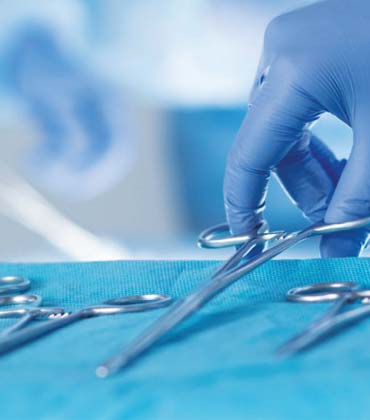
Physical and Psychological Impact of Reconstructive Surgery
As healthcare professionals, we must remain mindful of our patients’ mental and emotional well-being and offer them unwavering support throughout their rehabilitation
Thank you for Subscribing to Medical Care Review Weekly Brief

As healthcare professionals, we must remain mindful of our patients’ mental and emotional well-being and offer them unwavering support throughout their rehabilitation
Ernie Livingston is an experienced Director of Surgical Services with a robust background in the hospital and healthcare industry. He has a demonstrated history of working in this field and possesses skills in vascular and cardiac surgery, medical devices, sales operations, hospital business management, and leadership. Livingston holds an MBA degree and is a highly competent healthcare service professional.
What Innovations are you Implementing to Minimize Scarring in Reconstructive Surgery? We specialize in performing reconstructive surgery on patients who have undergone breast cancer treatment or suffered from burns and other injuries requiring grafting and arbitration. The future of reconstructive surgery hinges on finding methods to minimize scarring and other cosmetic side effects of the procedure, as these can profoundly affect patients psychologically. By reducing scarring, patients can move forward more effectively and achieve improved outcomes. Innovation is pivotal in this endeavor, involving the development of biocompatible products that facilitate a smoother and faster healing process. Many patients undergo breast reconstruction after mastectomy or seek treatment for burns, wounds, or scars that have not healed properly. My practice primarily focuses on cosmetic and post-cancer therapy to assist such patients. We perform skin grafting to close wounds and reduce the appearance of scars resulting from burns and other skin issues. However, facial reconstruction is not within our scope of services. I believe that many patients who undergo mastectomy due to breast cancer should also have the option for breast reconstruction. However, some patients opt out of it for various reasons, including age, financial constraints, or personal choice. I think it is essential for patients to consider breast reconstruction, as it can help restore their body image, which is crucial for their psychological well-being. While it may not significantly impact physical attributes, it can provide a much-needed psychological boost. Do you Believe That Specific Therapies or Approaches are Effective in Helping Patients Cope With Their Mental and Emotional Challenges? It is crucial to consider the implant type used to ensure a natural appearance. As the industry progresses, durability becomes vital to prevent complications and avoid the need for implant replacements. Proper sizing is also essential to ensure a good fit for the patient. Different implants of different shapes and sizes should be made available to patients. It is essential to remain calm with the patient and provide a natural look that meets their restorative needs. In the long term, implant durability, and a more natural look and feel are essential factors. Many patients who undergo surgeries, such as breast augmentation, reconstructive surgery after mastectomy, or treatment for burn injuries often face the challenge of scarring caused by incisions and wounds. Naturally, patients want their scars to be as minimal as possible. Therefore, using suture technology materials that reduce the inflammatory process can aid in better healing and minimize scarring. The choice of materials used to close wounds and incisions matters, as it can affect the healing process and the amount of scarring a patient may experience. Many options are available to help patients heal as well as possible with minimal scarring. Do you Identify any Specific Developments or Emerging Technologies That Can Enhance The Patient Experience in The Future? The advancements in wound care are impressive. The new skin grafts and substitutes being developed are exciting as they can assist in healing. The outcomes from these products are remarkable to observe. In particular, I am most excited about the developed wound therapy because it can help patients who suffer from significant or long-lasting wounds. These often leave noticeable scars, which can be a big concern for many people. With this new technology, patients can finally close these wounds and return to normal skin integrity. It’s great to see such progress being made in this field. Kindly Tell us About the Challenges That Patients Face After Reconstructive Surgery. Reconstructive surgery represents a lengthy and challenging path to recovery, impacting patients not only physically but also psychologically. As healthcare professionals, we must remain mindful of our patients’ mental and emotional wellbeing and offer them unwavering support throughout their rehabilitation. Essential to this process is providing surgical interventions and therapeutic measures aimed at restoring a more typical appearance and facilitating healing from both physical and emotional traumas they may endure. Nevertheless, while addressing their physical needs, we must not overlook the holistic aspect of their recovery journey. Thus, we must ensure comprehensive care that addresses and nurtures our patients’ mental and emotional health and physical rehabilitation.